by Admin | May 2, 2016 | Initiative
(May 2nd, 2016) Taiwan has urged Japan to engage with it in talks over disputed waters around the island of Okinotori.
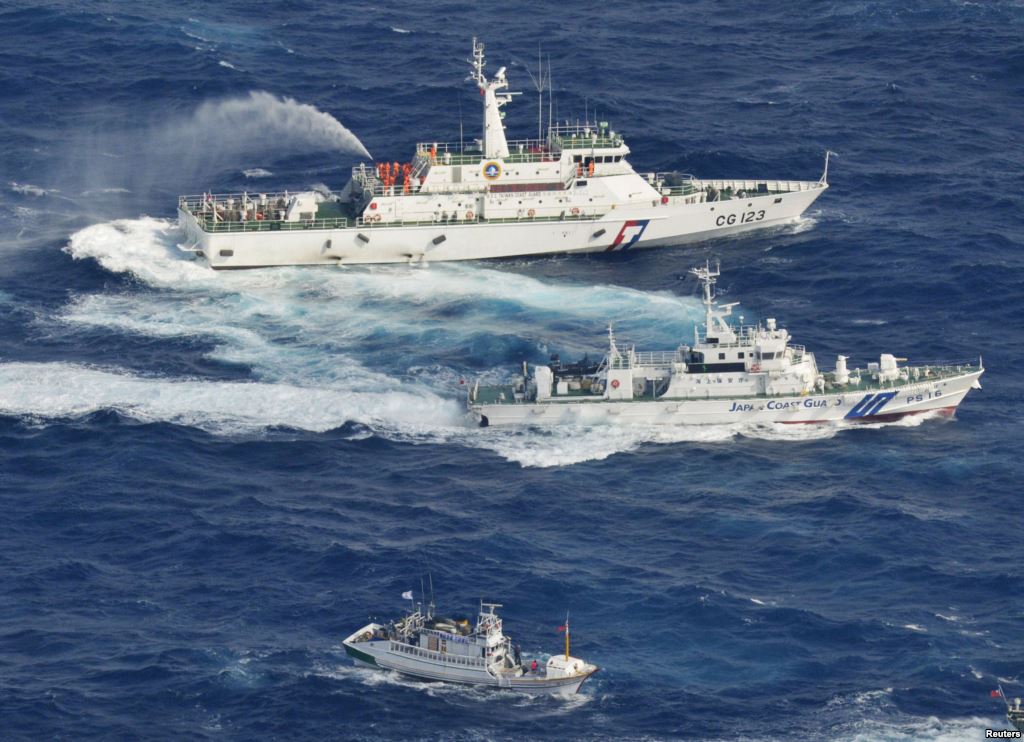
The request follows Japan’s seizure of a Taiwanese fishing boat.
At issue is whether Japan is entitled to a 200-nautical-mile exclusive economic zone surrounding Okinotori.
by Admin | May 2, 2016 | Global Alliance for Digital Governance, World Leaders in AIWS Award Updates
( May 2nd, 2016) Qian Tang, UNESCO’S Assistant Director General for Education, emphasized ‘’the immense need for social cohesion and intercultural dialogue in these turbulent times.’’ He spoke as a representative of UNESCO’s Director General at the 7th Global Forum of the United Nations Alliance of Civilizations.
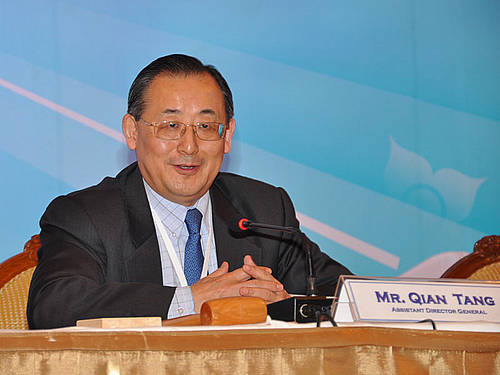
Mr. Tang discussed UNESCO’s challenges in seeking to promote peace, eradicate poverty and expand sustainable development and intercultural dialogue through education, the sciences, high and popular culture and mass media. He reiterated the central role of education as the world faces ‘’the real danger of losing young women and men to violent extremism and forced migrations (…) There is no stronger foundation [than Education] for recovery, and reconciliation.’’
He added that, in line with the 2030 Agenda for Sustainable Development, notably SDG 4 on education, UNESCO works toward “inclusive and equitable quality education and {to} promote lifelong learning opportunities for all.’’
He emphasized that Global Citizenship Education ‘’nurtures respect for all, a sense of belonging to a common humanity and helps learners become responsible global citizens in a diverse and increasingly complex world.’’
The Boston Global Forum has been heavily involved in promoting the concepts of global citizenship education, especially through the UNESCO-UCLA program in Global Learning and Global Citizenship Education at the University of California at Los Angeles. BGF member Carlos Alberto Torres is Distinguished Professor of Education and UNESCO Chair in Global Learning and Global Citizenship Education. Nguyen Anh Tuan, the BGF’s chief executive and editor-in-chief, is chairman of the International Advisory Committee of the UNESCO-UCLA Global Citizenship Education (GCE) program.
by Admin | May 2, 2016 | World Leaders in AIWS Award Updates
( May 2nd, 2016) The decision by the Bank of Japan to put off more economic stimulus for now means that market watchers are turning their attention to Prime Minister Shinzo Abe to see if he will propose a supplementary spending package to accelerate economic growth.
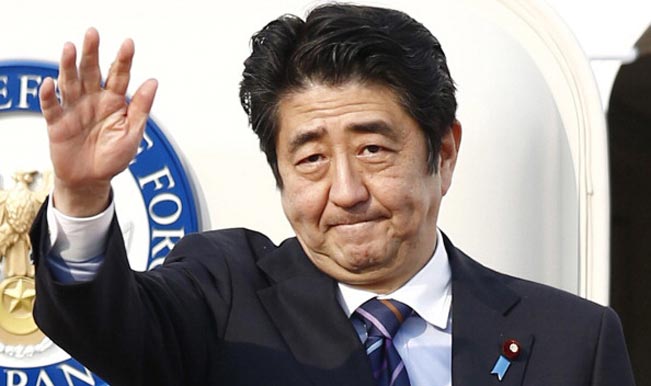
The Boston Global Forum has named Mr. Abe a “World Leader for Peace, Security and Development.’’
Bloomberg News has noted: “Abe has already said he’ll create a supplementary budget to address the economic damage caused by deadly earthquakes in Kumamoto earlier this month. The central bank said on Thursday it would supply 300 billion yen of funds to banks affected by the quakes.’’
by Admin | May 1, 2016 | World Leaders in AIWS Award Updates
( May 2nd, 2016) German Chancellor Angela Merkel supports maintaining steady dialogue with Vladimir Putin’s Russia even as Berlin considers deploying several hundred German troops to Lithuania as part of a NAT0 force of some 1,000 troops there meant to discourage aggression by Russia, which has been stepping up its shows of military force in the Baltic.
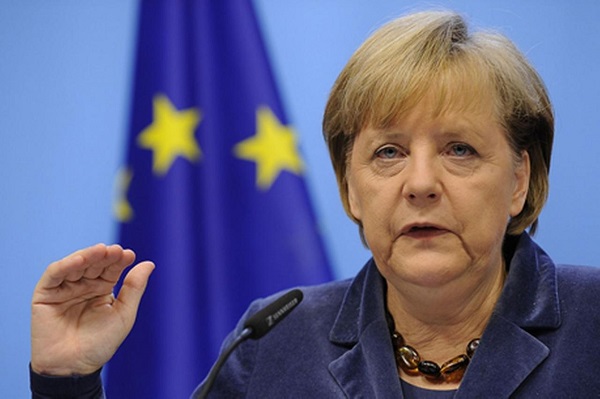
The Boston Global Forum has named Mrs. Merkel a “World Leader for Peace, Security and Development.’’
“We must always be prepared to allow for dialogue. I think that is very important.
She said that Germany seeks to strengthen the security of all of NATO’s eastern member states,” Mrs. Merkel said on April 29 in a joint press conference in Berlin with visiting Latvian Prime Minister Maris Kucinskis, highlighting a stronger German involvement within NATO in Eastern Europe.
The German government, she added, wants a resumption of dialogue within the NATO-Russia Council. In mid-April, the NATO-Russia Council met for the first time in two years to discuss the Ukraine crisis.
by Admin | May 1, 2016 | World Leaders in AIWS Award Updates
(May 2nd, 2016) Japanese Prime Minister Shinzo Abe will visit Italy, France, Belgium, Germany, Britain and Russia this week for talks with their leaders.
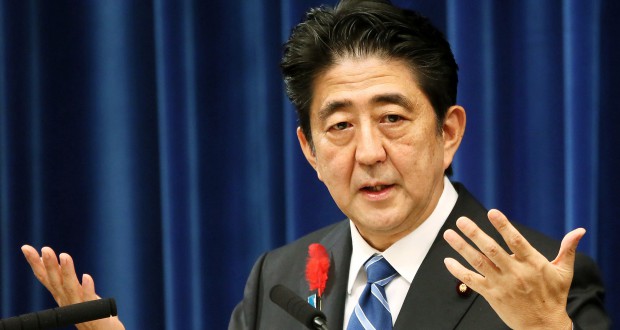
Mr. Abe will exchange views on the world economy and other major issues to be discussed at a G7 Summit that Japan will host on May 26-27. Italy, France, Germany, Canada, the United States, Japan and Britain are the G7 members. For a while there was a G8, which included Russia, but that nation was excluded after its invasion and occupation of Ukraine’s Crimea peninsula.
In Russia, Abe will talk with President Vladimir Putin on bilateral relations, including a territorial dispute over four Russian-held islets off Hokkaido, and other international issues.
The G-7 Ise-Shima Summit will take place May 26 to 27 in Mie Prefecture, central Japan.
by Admin | May 1, 2016 | Event Updates
( May 2nd, 2016) Japan’s role in this year’s G7 Summit will be more important than in previous years’ summits, and not just because it will host the conference, to be held May 26-27.

In a Forbes piece, Akihiko Tanaka a professor of international politics at the University of Tokyo, specializing in East Asia, concludes:
“Economic uncertainty and security challenges weigh heavy on all G7 countries. During such difficult times, the foundations of Japanese diplomacy are stronger than ever and its economy, though facing structural challenges, is improving. Through the G7 Summit, Japan should contemplate global issues together, and provide leadership for meaningful collective action.’’
by Admin | May 1, 2016 | Event Updates
( May 2nd, 2016) Japan will hold an outreach meeting during the G7 Ise-Shima Summit, inviting the heads of state and government of non-G7 countries and chairpersons of international organizations, Chief Cabinet Secretary Yoshihide Suga announced on April 8.
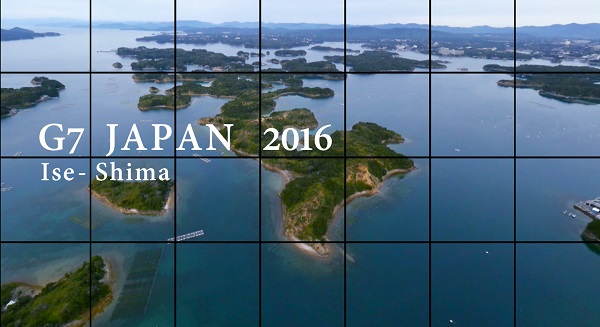
The G7 Ise-Shima Summit will be the first summit held in Asia in eight years. In light of this, this outreach meeting will engage in discussions that explore what is needed to sustain the well-being of Asia, which is steering economic growth as the growth center of the world. From this perspective, the heads of state and government of mainly ASEAN member states, Asian island countries, countries with infrastructure demand and countries dependent on sea lanes will be invited.
From Asia, the heads of state and government of Laos, Vietnam, Indonesia, Bangladesh, Sri Lanka, and Papua New Guinea will be invited. In addition, the head of state and government of Chad, the Chairperson of the African Union, will be invited to ensure that the summit’s outcomes connect to the Tokyo International Conference on African Development (TICAD). Furthermore, from international organizations, the chairpersons of the UN, OECD, ADB, IMF and the World Bank will be invited.
In addition to the discussions focusing on Asia, this meeting will also feature issues that Japan, which holds the G7 Presidency, attaches particular importance to from a global perspective, including quality infrastructure investment, health and women.
by Admin | May 1, 2016 | Event Updates
(May 2nd, 2016) The Ministry of Foreign Affairs calls on Japan to enter talks with the Republic of China on the contested waters surrounding Okinotori following the seizure of an ROC fishing boat April 25.

Japanese coast guard personnel boarded the Dong Sheng Ji No. 16 and then detained the boat and its crew in waters about 150 nautical miles east-southeast of Okinotori (19°29’42” north latitude, 139°42’74” east longitude).
On the issue of whether Japan is entitled to a 200-nautical-mile exclusive economic zone surrounding Okinotori, with a naturally formed land area of 9 square meters, MOFA has reiterated to Japan on numerous occasions that the ROC government has taken note of the controversy regarding the status of Okinotori and proposes that parties involved negotiate the matter according to international law or settle it peacefully with the assistance of international organizations.
Before the UN Commission on the Limits of the Continental Shelf makes a final decision on the legal status of Okinotori, Japan should respect the navigation and fishing rights of the ROC and other countries in those waters and engage in consultations with the ROC as soon as possible so as to reach an outcome that both sides find acceptable.
In accord with the wishes of the families of crewmembers that the boat and crew be released as soon as possible, the captain of DSJ16 paid a security deposit of six million yen (US$54,000) April 26 with assistance from MOFA. The captain and his crew were released in Yokohoma that afternoon at 4:40 p.m. Officials from the ROC representative office in Japan promptly paid them a visit and informed their families of their release.
MOFA stresses again that the deposit paid to Japan by the ship’s owner does not indicate that the ROC government implicitly accepts Japan’s claim to a 200-nautical-mile EEZ surrounding Okinotori.
by Admin | May 1, 2016 | AI World Society Summit
( May 2nd, 2016) The Supreme Court on Thursday approved a rule change that would let U.S. judges issue search warrants for access to computers located in any jurisdiction despite opposition from civil liberties groups who say it will greatly expand the FBI’s hacking authority.

U.S. Chief Justice John Roberts transmitted the rules to Congress, which will have until Dec. 1 to reject or modify the changes to the federal rules of criminal procedure. If Congress does not act, the rules would take effect automatically.
Magistrate judges normally can order searches only within the jurisdiction of their court, which is typically limited to a few counties.
The U.S. Justice Department, which has pushed for the rule change since 2013, has described it as a minor modification needed to modernize the criminal code for the digital age, and has said it would not permit searches or seizures that are not already legal.
Google, owned by Alphabet Inc (GOOGL.O), and civil liberties groups such as the American Civil Liberties Union and Access Now contend the change would vastly expand the Federal Bureau of Investigation’s ability to conduct mass hacks on computer networks.
They say it also could run afoul of the U.S. Constitution’s protections against unreasonable searches and seizures.
While Congress can reject amendments to the rules that govern federal courts, it rarely exercises that authority and is not expected to do so during a heated election year. And few lawmakers have shown interest in the subject.
Democratic Senator Ron Wyden of Oregon, condemned the rule change as having “significant consequences for Americans’ privacy,” and vowed to introduce legislation to reverse it.
“Under the proposed rules, the government would now be able to obtain a single warrant to access and search thousands or millions of computers at once; and the vast majority of the affected computers would belong to the victims, not the perpetrators, of a cybercrime,” Wyden said in a statement.
The Justice Department’s quest to broaden warrant jurisdiction has not drawn as much attention as other recent confrontations over government access to digital information. These included the FBI’s standoff with Apple over encryption arising from the agency’s effort to unlock an iPhone used by one of the shooters in December’s San Bernardino massacre.
A Justice Department spokesman said the change was necessary because criminals increasingly use “anonymizing” technologies to conceal their identity online, and remote searches are often the only way to apprehend such suspects.
The change does not authorize any new authorities not already permitted by law, the spokesman said.








